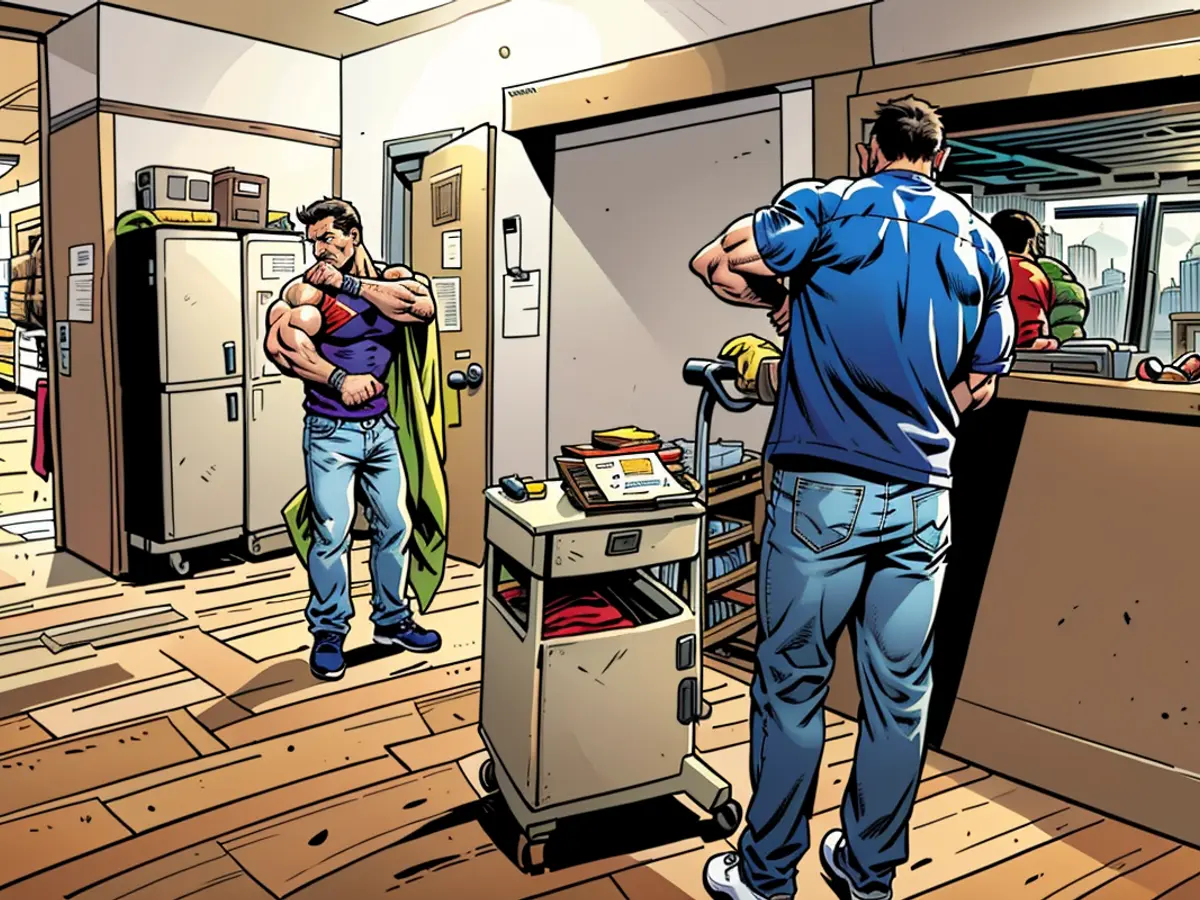Bundestag debates hospital reform for the first time
Without the reform, up to 25 percent of hospitals in this country could go bankrupt by 2030, Lauterbach stated in the Bundestag. In 2022, around ten percent of clinics were in the "red zone" with increased insolvency risk, according to the "Hospital Rating Report 2024" of the RWI Institute and the Institute for Healthcare Business GmbH, which was also published on Thursday. Thirty percent of these institutions reported an annual loss on a corporate level.
With his plans, the Minister not only wants to respond to the poor financial situation of clinics but also to other problems. There is a shortage of doctors and nursing staff, and medical treatment quality often leaves much to be desired, especially in small clinics.
A key building block of the planned changes is a reform of diagnosis-related groups (DRGs). Introduced in 2004, these have led to incentives for overtreatment, according to Lauterbach. "The economy has gone too far," he said in the Bundestag. "We must reflect on the medical need of the patients."
In the future, hospitals should be paid independently of the services they actually provide - through so-called advance payment groups, which cover 60 percent of their budgets. They will be paid for the services they offer, not for the services they actually perform.
Lauterbach's reform is not without controversy. Above all, the states have concerns that many smaller hospitals in rural areas may have to close. This was also the focus of CDU health policy spokesman Tino Sorge's criticism in the Bundestag. He accused the Minister of acting against the states. "We need more joint action," he confirmed. The need for change was not denied by Sorge: "We need a reform - it's not about the what, but the how."
The AfD parliamentarian Thomas Dietz welcomed the core elements of the reform, such as the de-bureaucratization and the introduction of advance payment groups. However, he warned against excessive bureaucracy and called the planned measures overall "insufficient."
Government coalition representatives emphasized the significance of the planned changes. "The traffic light has dared to tackle a major reform," said Greens leader Ricarda Lang. The reform is necessary because nothing has been done for years.
"The German healthcare system is on the intensive care unit," said FDP health expert Andrew Ullmann. "It can't go on like this." The reform will ensure high-quality care and give medical staff "room to breathe." Ullmann also confirmed that "the concerns and fears of the states" would be taken seriously.
The draft of the Hospital Care Improvement Act was referred to the committees of the German Parliament after the first debate. Lauterbach, looking at the parliamentary procedure, already hinted at possible changes and adjustments, but in an interview with ZDF, he ruled out compromises on the quality of care: "Where we don't make concessions is on the quality of care."
- Despite Lauterbach's warnings, up to 25% of hospitals might face insolvency by 2030 without hospital reform, as indicated in the Bundestag.
- In 2022, the "Hospital Rating Report 2024" revealed that around 10% of clinics were in the "red zone," with increased insolvency risk, and 30% reported annual corporate-level losses.
- In response to the poor financial situation and other issues, such as shortages of doctors and nursing staff, Karl Lauterbach plans to reform diagnosis-related groups (DRGs), aiming to reduce incentives for overtreatment.
- Tino Sorge, the CDU's health policy spokesman, criticized Lauterbach in the Bundestag, expressing concerns about smaller hospitals in rural areas potentially closing due to the reform.
- Andrew Ullmann, the FDP's health expert, welcomed the reform's core elements, including de-bureaucratization and advance payment groups, but emphasized the need to address states' concerns and fears to ensure high-quality care.







